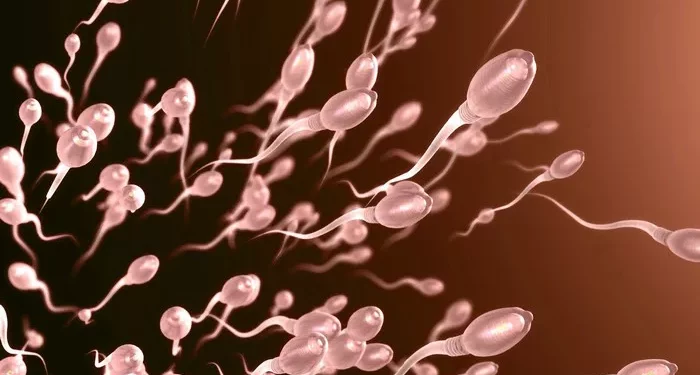Non-obstructive azoospermia (NOA) is a condition characterized by the absence of sperm in the ejaculate due to impaired or absent sperm production within the testes. Unlike obstructive azoospermia, where the issue lies in a blockage preventing sperm from entering the ejaculate, NOA stems from issues in sperm development and maturation. This condition significantly impacts male fertility, making natural conception challenging. However, advancements in assisted reproductive technologies (ART) offer hope through various treatment options aimed at retrieving viable sperm for use in procedures like in vitro fertilization (IVF).
Causes of Non-Obstructive Azoospermia
NOA can arise from several underlying causes, often making it a complex condition to diagnose and treat. The most common causes include:
Hormonal Imbalances: Disorders in the hormonal axis regulating sperm production, such as abnormalities in follicle-stimulating hormone (FSH), luteinizing hormone (LH), and testosterone levels, can impede spermatogenesis.
Genetic Disorders: Conditions like Klinefelter syndrome (47,XXY), Y chromosome microdeletions, and other genetic anomalies can result in defective or absent sperm production.
Testicular Issues: Primary testicular failure, where the testes themselves are unable to produce sperm, can be due to factors such as trauma, infections like mumps orchitis, or exposure to chemotherapy or radiation.
Despite thorough evaluations, the specific cause of NOA might not always be identifiable, complicating the treatment approach.
See also: Obstructive Azoospermia Treatment
Treatment Approaches
Lifestyle Modifications
Optimizing lifestyle factors can potentially improve overall reproductive health, although they may not directly resolve NOA. Key areas include:
Weight Management:Achieving a healthy weight can positively influence hormone levels and improve general health, which might indirectly benefit sperm production.
Avoiding Toxins:Limiting exposure to environmental toxins, such as pesticides, heavy metals, and certain chemicals, can protect testicular function.
Managing Stress:High stress levels can negatively impact hormonal balance, so stress management techniques like mindfulness, yoga, and adequate sleep are essential.
Hormone Therapy
For men with NOA due to hormonal imbalances, hormone therapy can be a viable treatment option. Medications used include:
FSH and hCG:These hormones can stimulate the testes to produce sperm. FSH promotes spermatogenesis, while hCG mimics LH, encouraging testosterone production.
Clomiphene Citrate:An oral medication that can increase the production of endogenous FSH and LH, thus potentially enhancing spermatogenesis.
Aromatase Inhibitors:These are used to manage elevated estrogen levels in men, thereby improving the ratio of testosterone to estrogen and supporting sperm production.
The goal of hormone therapy is to correct hormonal deficiencies or imbalances, thereby stimulating sperm production. This treatment requires careful monitoring by a specialist to adjust dosages and assess efficacy.
See also: New Frontiers in Azoospermia Treatment:
Testicular Sperm Extraction (TESE) with Intracytoplasmic Sperm Injection (ICSI)
When lifestyle modifications and hormone therapy are insufficient, surgical sperm retrieval becomes necessary. TESE is a widely utilized procedure in such cases:
Testicular Sperm Extraction (TESE):This minimally invasive surgical procedure involves extracting small tissue samples directly from the testes, which are then examined for the presence of sperm. Micro-TESE, a more advanced technique, uses a microscope to identify and retrieve sperm from seminiferous tubules, improving retrieval rates.
Intracytoplasmic Sperm Injection (ICSI):Once sperm are retrieved, ICSI is used in conjunction with IVF. This technique involves injecting a single sperm directly into an egg, facilitating fertilization even with very limited sperm quantities.
Success Rates and Considerations
The success of sperm retrieval and subsequent fertilization using TESE and ICSI can vary based on several factors:
Sperm Retrieval Rates:The likelihood of retrieving sperm during TESE can range from 30% to 70%, depending on factors like the underlying cause of NOA and the technique used.
ICSI Success Rates:Once sperm is successfully retrieved, the success of ICSI largely depends on the quality of the sperm and eggs, as well as the expertise of the embryology lab. Fertilization rates per ICSI cycle can range from 60% to 80%, with pregnancy rates per transfer being around 30% to 50%.
Individual outcomes vary, and it is crucial for patients to have realistic expectations and understand the potential for multiple attempts. Consulting with a fertility specialist can provide personalized insights based on specific medical histories and conditions.
Conclusion
For men with non-obstructive azoospermia, achieving pregnancy is challenging but not impossible. A combination of lifestyle modifications, hormone therapy, and advanced surgical techniques like TESE, coupled with ICSI, offers a viable pathway to fatherhood. The choice of treatment should be individualized, taking into account the underlying cause of NOA, overall health, and personal preferences. Assisted reproductive technologies have revolutionized the prospects for men with NOA, providing hope and options where none previously existed.
Disclaimer
This article is for informational purposes only and does not constitute medical advice. It is essential to consult with a qualified healthcare professional for diagnosis and personalized treatment plans tailored to individual needs.
Related Topics:
How Common is Azoospermia: Things You Need To Know



























